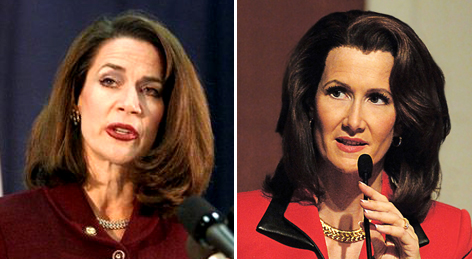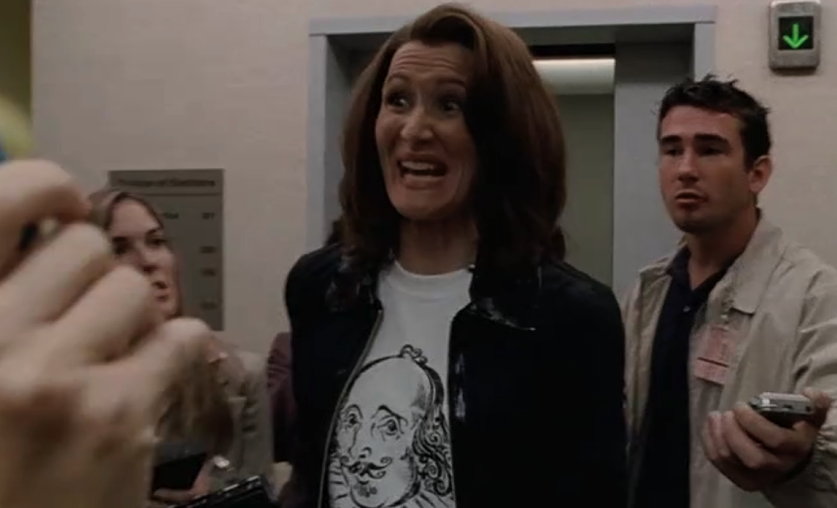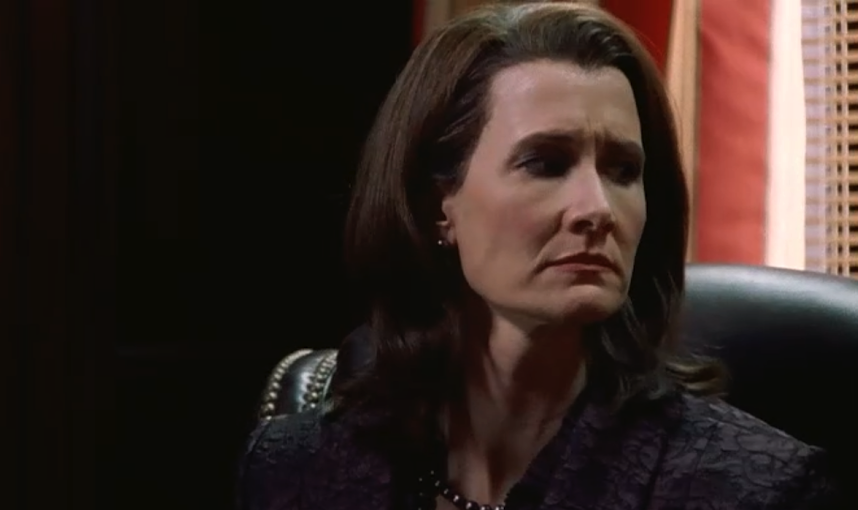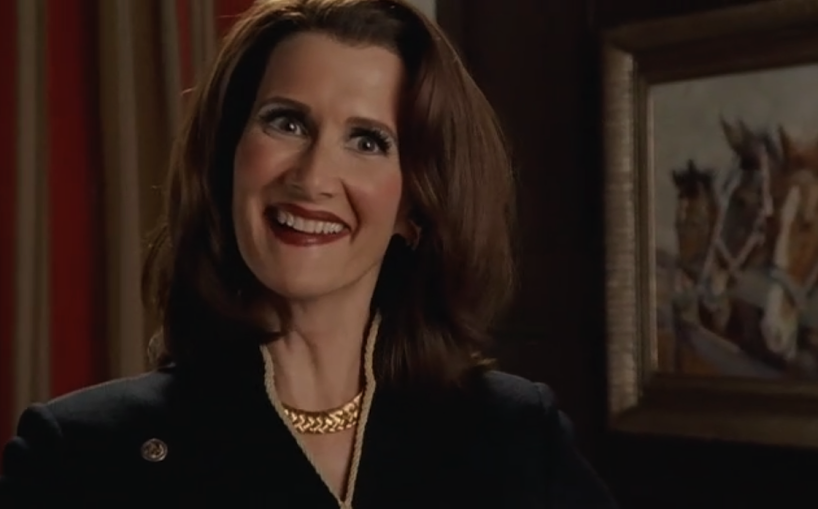Women's History Month continues with Adam Armstrong on Laura Dern in "Recount"
 Katherine Harris and Laura Dern as Katherine Harris
Katherine Harris and Laura Dern as Katherine Harris
Born: Katherine Harris clawed her way into this world on April 5th, 1957 and, presumably, crawled to her mother’s boudoir to try her first crack at putting on lipstick and dabbling in the different shades of foundation. Rose to prominence as Florida’s Secretary of State during the 2000 election.
Death (in politics): Still kicking, albeit no longer Florida’s Secretary of State. After a failed 2006 senate election run, she still combats jokes regarding her unfairly ridiculed makeup techniques during the 2000 election recount fiasco.
In the 2008 HBO film Recount, we are introduced to Harris when she is awoken, startled, at 3:52 a.m. by a phone call on the night of the election. She groggily answers the phone while the voice on the other end heatedly asks who the winner of Florida’s Electoral College votes is. Clad in a frumpy William Shakespeare caricature illustrated t-shirt and a pleather wannabe biker jacket, perhaps from an earlier time when she envisioned Harleys and assless chaps instead of pant suits and podiums, she sprays a puff of breath freshener and walks into the midst of electoral chaos, ripe for the feast that’s to begin. [More...]

Harris, as shown in the film, is a character who possesses a grand ambition, if not for power then for importance and a legacy to which she can be remembered for. In one scene, she acknowledges her uncanny kinship to Queen Esther. If you’re like me and have little to no knowledge of the bible, aside from that it is the bestselling book of all time and has a shockingly smaller font size than the Game of Thrones book series, Harris illuminates for us, simply, that Queen Esther sacrificed herself for “the little Jewish people”. With many of the voters being elderly and, wouldn’t you know it, Jews, she unfortunately sees herself as the symbolic monarchal figure whose duty is to fight for the people’s votes and ensure that each one counts (if that vote is cast in favor for Bush, that is, and within the boundaries of the law). Even if it takes sacrificing herself to do so, she damn well will.
If I perish, I perish.”
Despite holding a position of power, little of her actions in the film are done on her own accord. When the lobbyists and legal counsel speak, perched upon her shoulders and whispering into her ear, they manipulate her by playing off of her desperation for significance, slyly suggesting what she should do. Harris believes these implanted ideas are her own. After the groundwork has been laid regarding the impending deadline to certify the winner of the electoral college votes, which can only be done at her personal discretion and by her interpretation of the law, she poses to her counsel, “Why don’t I just ask the States why I should give them more time?” Seeing that Harris has played into his hand exactly as he meant her to, the lobbyist praises her on her proposition.
 Katherine realizes people hate her
Katherine realizes people hate her
In the end, Katherine Harris’ sacrificial death wish is granted, and she surrenders herself for the rule of law, certifying Florida’s votes in favor of Bush, but states the real winner of the election is the law, and ends her speech by saying, “God bless America.” Outside her office windows, protesters hold up picket signs labelling her “Katherine the Terrible”. On the television, interviewers compare her physical appearance and demeanor to that of Cruella de Vill. She later pronounces, “It’s going to take more than Letterman to take me down”. When Harris is visually faced with the negative image she’s created from her questionable decisions, Dern shows this wounded woman’s pain. This is, after all, a person, the same as any of us. She has opted to the play the part true as she sees it: a woman desperate to be remembered.
It’s easy to dismiss Katherine Harris, vilify her, cast her aside, irrevocably judged, past absolution. Dern, though, taps into a difficult, and sadly little seen, form of empathy. She takes the portrayal beyond simple caricature, and humanizes her.
Towards the end of the film, before giving the vote certification, Harris takes a deep breath and then gradually smiles, her enthusiasm spreading across her face as she begins to proudly strut in front of the cameras to the podium. Here is a woman who, political and personal agenda aside, is a fighter, marching towards her own concept of victory, in spite of it all. We all want a surviving legacy, to be important, memorable, and significant. Sure, the reasoning behind Katherine Harris’ actions might not have been the same as yours or mine, but her rationalizing wish - to be remembered - that’s inherently human.

Awards Season
Dern amassed nominations from both the Emmys and the Screen Actors Guild, unfortunately losing to Eileen Atkins (Cranford) and Laura Linney (John Adams), respectively. She triumphed however at the Golden Globes in their weird catch-all supporting actress TV category. Her competition there? Rachel Griffiths (Brothers & Sisters), Eileen Atkins (Cranford), Melissa George and Dianne Wiest (In Treatment). She's been a favorite with the HFPA since her turn as 'Miss Golden Globe' in 1982; she's won four to date.